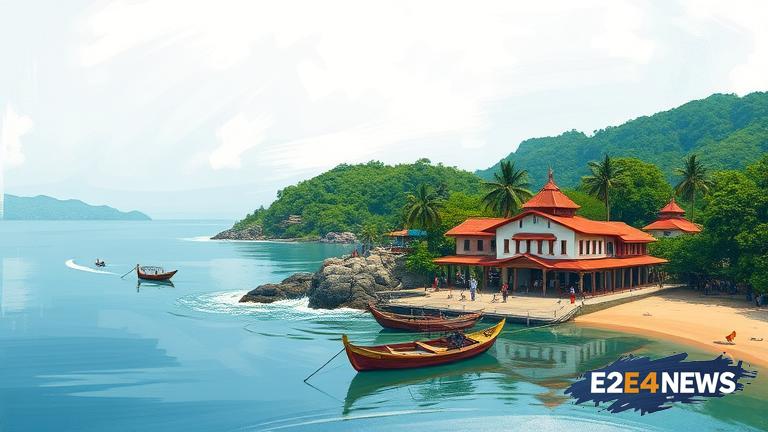Sri Lanka, an island nation located in the Indian Ocean, has a rich cultural heritage and natural beauty that makes it an attractive destination for tourists. The tourism industry has been identified as a key sector that can contribute to the country’s economic growth and development. However, the industry also faces several challenges, including the need to balance economic benefits with social and cultural concerns. One of the main benefits of tourism is the creation of employment opportunities, which can help to reduce poverty and improve living standards. Additionally, tourism can also generate revenue for local communities and support the conservation of natural and cultural resources. Nevertheless, the industry must also address issues such as overcrowding, pollution, and the degradation of natural habitats. To mitigate these threats, the government and stakeholders must adopt realistic approaches, such as implementing sustainable tourism practices, investing in infrastructure development, and promoting cultural exchange programs. Furthermore, it is essential to ensure that the benefits of tourism are shared equitably among local communities and that the industry is managed in a way that respects the country’s cultural and environmental heritage. The government has launched several initiatives to promote tourism, including the development of new tourist attractions and the improvement of infrastructure. However, more needs to be done to address the challenges facing the industry and to ensure that tourism is developed in a sustainable and responsible manner. The private sector also has a crucial role to play in promoting tourism, through investments in hotels, resorts, and other tourist facilities. Moreover, the industry must also prioritize the needs of local communities, including the provision of training and employment opportunities. In recent years, Sri Lanka has experienced a significant increase in tourist arrivals, which has contributed to the country’s economic growth. However, the industry must also be mindful of the potential risks and challenges associated with mass tourism, including the strain on local resources and infrastructure. To address these challenges, the government and stakeholders must work together to develop a comprehensive and sustainable tourism strategy that balances economic benefits with social and cultural concerns. This strategy must also prioritize the needs of local communities and ensure that the benefits of tourism are shared equitably among all stakeholders. In conclusion, Sri Lanka’s tourism industry has the potential to drive economic growth, promote social development, and preserve cultural heritage, but it requires a realistic and sustainable approach to address the challenges facing the industry. By working together, the government, private sector, and local communities can ensure that tourism is developed in a way that benefits all stakeholders and promotes the long-term sustainability of the industry.
